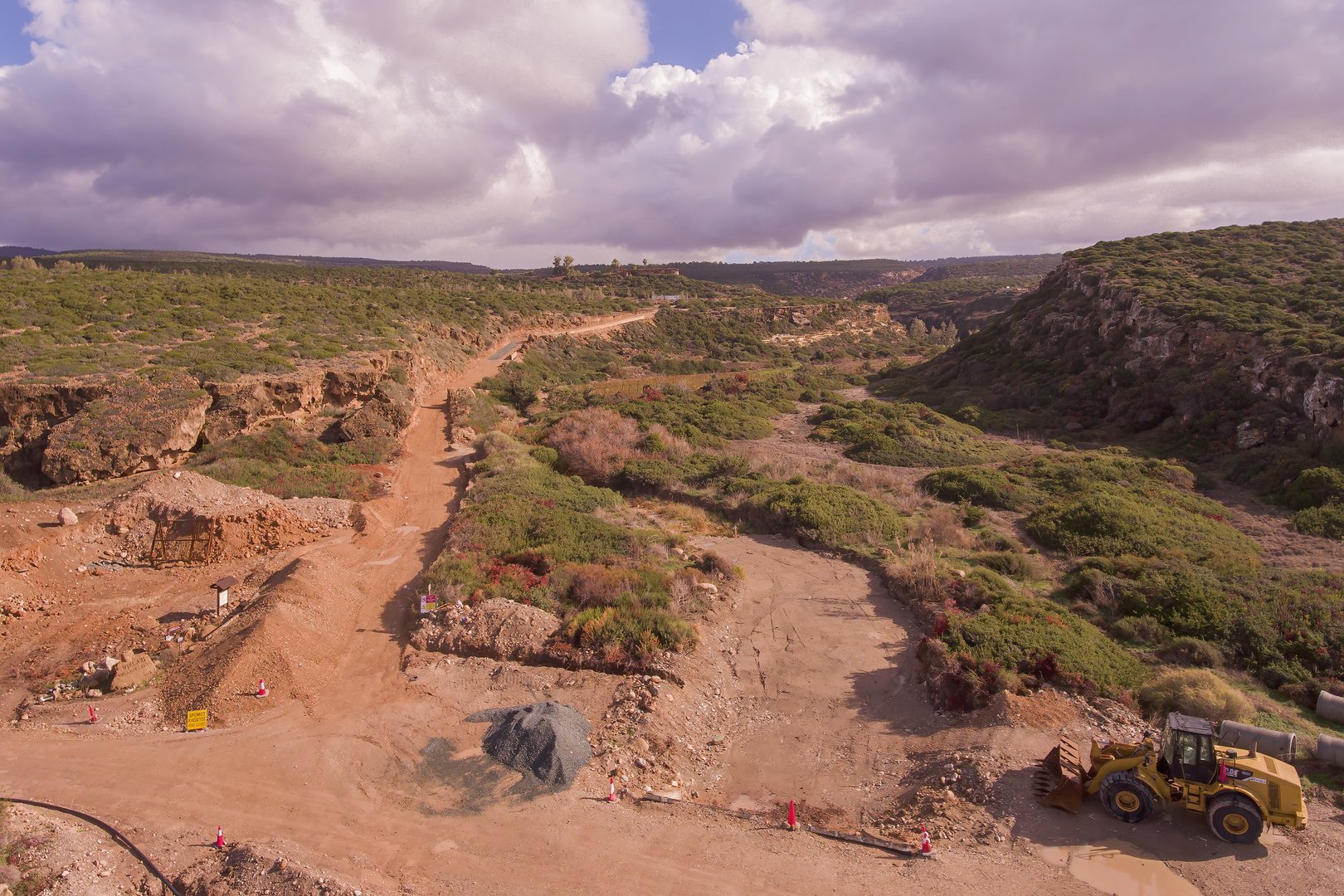From the casino in Akrotiri to the Akamas roadworks, we are just not learning the lesson
I was more than a little interested to read in the press recently that the casino at Akrotiri is laying off hundreds of staff. This, just a few months after the fanfare of the casino resort’s grand opening. It seems the mega casino is not just an environmental disaster; it is also morphing into a rather large ‘white elephant’. The much-touted promise of ‘good casino jobs’ for local people is evaporating as the ‘City of Dreams’ is jolted awake by harsh economic reality.
This is not a case of an environmental schadenfreude. I have no particular feeling either way regarding the fate of the much-hyped ‘biggest casino in Europe’ and feel nothing but sympathy for those laid off. My objection to the development is over where it is located and over the development strategy it represents. A massive structure looming over Zakaki marsh and Akrotiri salt lake and impacting on these and other precious wetlands on Akrotiri peninsula, the casino is all about big investments in development, for big returns in the short-term. The opposite of sustainability, on both counts.
The wars in Israel and Ukraine are being blamed for the damaging shortage of big-spending casino customers, but this simply highlights the folly of such development strategies. Strategies based on big investments for big short-term gains, ever vulnerable to market shifts, rather than strategies based on long-term sustainability.
I remind readers that so eager was the last government to see the casino built, that the then president, Nicos Anastasiades – gold shovel in hand – was participating in a ceremony for the laying of the foundation stone before his own government’s environmental impact procedure had been completed. The impact assessment duly gave the go-ahead for the development. The British bases, meanwhile, responsible for the protected areas at Akrotiri, added injury to presidential insult, by deciding there was no need for a full environmental assessment on their part.
So the mammoth casino development went ahead, despite the pretty obvious impacts this will have on the hydrology of the island’s most precious wetland complex and by increasing visitor pressure on this fragile area (to mention just two key issues). Despite protestations by BirdLife Cyprus and other environmental organisations, the casino mushroomed up to form a nightmarish backdrop to the wetlands, and the floodgates of development flew open. Around the casino, work advances on villas and golf greens, while seven new towers are also proposed. Pressure on protected sites like Lady’s Mile grows – for the casino-goers would need somewhere to go to drown their gambling losses and celebrate their rare wins. All this is part of a government vision for development followed by more development. The area north of the Akrotiri wetlands has become the embodiment of this vision of ‘Cyprus as the new Dubai’.
Meanwhile, BirdLife Cyprus and our NGO allies Terra Cypria are busy trying to promote eco-tourism on the peninsula, through a project funded by the Darwin Initiative (UK). We do not have the ‘clout’ to rival the development brigade, but we want to do what we can to show there might be another way. A far more sustainable one. It offers no massive short-term profits, but protecting amazing sites like Akrotiri can generate steady and lasting income for local communities, through promotion of wildlife tourism. The Akrotiri wetlands already attract bird-watchers and other nature enthusiasts. If well managed, this complex of rich wetlands could become a top European wildlife-watching destination. This really could create sustainable income and good jobs for local communities. As part of the Darwin project, we are working, among other things, on managing access to more sensitive wildlife sites, on promotion of sustainable beef from the cows on Akrotiri marsh and on promotional activities, such as the successful ‘Akrotiri Spring Festival’, which we hope will become a staple for this special area. But at the end of the day, it is an ‘either, or’ choice – you can’t have both massive development and agro-tourism. And this is why the government’s approach is so worrying…
And all the while, a few miles to the West, Akamas is yet again the stage for unwelcome environmental ‘foul play’. The unfolding ‘Roadgate’ scandal is further evidence of badly misplaced priorities, and this saga is becoming increasingly surreal.
Clear environmental conditions were put in place for road improvements in this protected Natura 2000 site. The diggers then did their own thing, making the roads up to twice as wide and generally laying waste in this precious area, one of our last remnants of relatively untouched coastal habitat.
Environmental organisations did their job and blew the lid on this. What has followed has been a multi-pronged civil service attempt to cover tracks, muddy the waters and generally mislead. It is actually very simple: legally binding environmental conditions were set for these works in this protected area and they are not being followed. It does not need endless enquiries and public statements. It needs the works to be stopped, the damage to be repaired and the whole plan to be thrown back onto the drawing board, as it has failed spectacularly at the implementation stage.
If we lose this case for Akamas, by accepting that environmental conditions can be ‘tweaked’ after the event, then the future for all protected sites is paved for more and more development, not for careful management and the agro-tourism potential it brings.
Martin Hellicar is director of local nature conservation NGO BirdLife Cyprus








Click here to change your cookie preferences